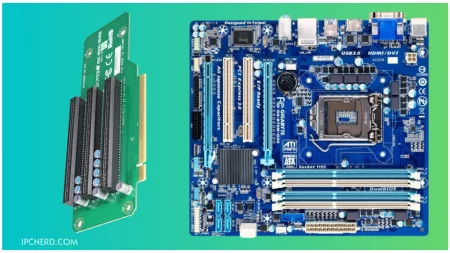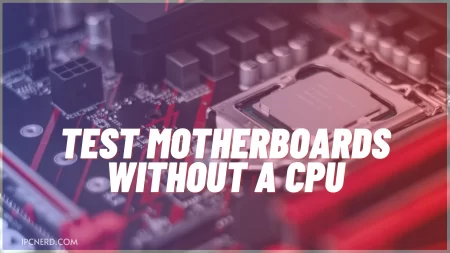The motherboard is a leading and trusted technology website. An article recently quoted them saying they will post without a CPU, but only for a short time. This is likely because of the increasing number of news outlets, blogs, and websites posting content without CPUs.
Will Motherboard Post Without CPU?

Computer hardware can malfunction without warning. If your computer is not booting or appears to be running slowly, it may be time to check the hardware components.
But what if you don’t have a physical keyboard or mouse? Or if your motherboard is damaged? In these cases, you may need to use a virtual machine or another computer to post your work and retrieve your results.
One way to do this is to create a virtual machine on another computer and use that as your working computer.
You can then connect to the virtual machine using a remote terminal program, HyperTerminal, or a built-in Windows feature called Virtual PC. This approach works best if you can access both working and nonworking computers.
If you don’t have access to another computer, you can use a software utility called VMware Workstation or Parallels Desktop for MacOSX. Both programs allow you to create and run virtual machines on your computer.
What Happens If Motherboard Posts Without CPU?
If the motherboard posts without the CPU, it is likely that the CPU has failed. To verify this, you will need to remove the motherboard from the computer and look at the processor. If you can see any obvious damage or malfunctions, then it is likely that the CPU has failed.
In some cases, however, a motherboard may still post without a processor, even if there is damage to the processor. If you are unsure whether or not your motherboard is posting without the CPU, you can order a replacement from your computer manufacturer or online retailer.
Causes of the Problem
One of the most common issues people have with their PC is that it won’t start up. A wide variety of things can cause this, but one of the most common reasons is something wrong with the motherboard. More specifically, Motherboard problems can cause CPU problems and vice versa.
When you have a motherboard problem, your computer won’t start up, no matter what you do. The first thing to do is troubleshoot the problem using some basic techniques. You might need to take your computer in for repair or replacement if that doesn’t work.
If you think your PC might be having a motherboard problem, here are some things to check:
- Make sure all the cables are plugged in correctly and connected to the correct ports on the motherboard.
- Check if any fan connectors are loose or not seated properly.
- Try booting your computer using an external hard drive instead of Windows installation media. This can help identify any problems with loading Windows startup files or drivers.
- Check for errors in System Information (msinfo32). If there are any errors, this could indicate a problem with your motherboard or other hardware components.
- Try resetting your computer by pressing and holding down both the power and volume down buttons until you see a screen that says “ Acer Aspire One D270-P069 Laptop
What Does It Mean to Post Without a CPU?
Modern motherboards have built-in processors that allow users to post without needing a central processing unit. Motherboards with integrated processors usually have a dedicated button or menu item for posting, while those with separate processors will require an external processor.
The main benefit of using an integrated processor is speed. Posted messages will be sent directly to the server rather than through the motherboard’s internal processor, meaning they will be delivered faster.
This is particularly important when posts are time-sensitive and must reach a large audience as quickly as possible.
The downside of using an integrated processor is that it may not be able to handle certain workloads. If you plan on using your motherboard’s processing power for other tasks, such as gaming or video editing, you may want to consider investing in an external processor.
Why does the motherboard need to post?
A motherboard typically needs to have power delivered to it for it to function. If the CPU fails, the motherboard will not be able to provide power, and consequently, the computer will not work. Often, when a CPU fails, the motherboard will also fail.
In some cases, however, the motherboard may still function with a failing CPU. In these cases, it is important to determine if the motherboard can post (a function without a CPU).
There are several ways to determine if your motherboard can post without a CPU. One way is to check if the POST (power on self-test) LED is on. If it is not, your motherboard likely requires a CPU to post.
Another way to check this is to try booting into Safe Mode. If you can do this, your motherboard likely does not require a CPU to post.
However, there are rare cases where Intel motherboards may not be able to load into Safe Mode or may require specific jumper settings for it to boot into Safe Mode.
If either of these methods does not work or you cannot boot into Safe Mode, then you should contact your hardware manufacturer for further assistance.
What would happen if the motherboard did not post?
If the motherboard does not post, the CPU will not turn on, and the computer will not boot. Several things can cause this, but most commonly, it is due to a bad power supply unit.
If you are unsure whether or not your motherboard is posting, you can check by connecting a known good power supply and checking to see if the computer boots.
Conclusion
“Will Motherboard Post Without CPU?” is a question on many tech enthusiasts’ minds for months. Recently, some motherboard manufacturers have started withholding CPUs from sale to the general public to prevent the spread of malicious code and hardware vulnerabilities.
Is this the end of the world? Not necessarily. It might just be what we need to take stock of our security measures and make some necessary changes.







